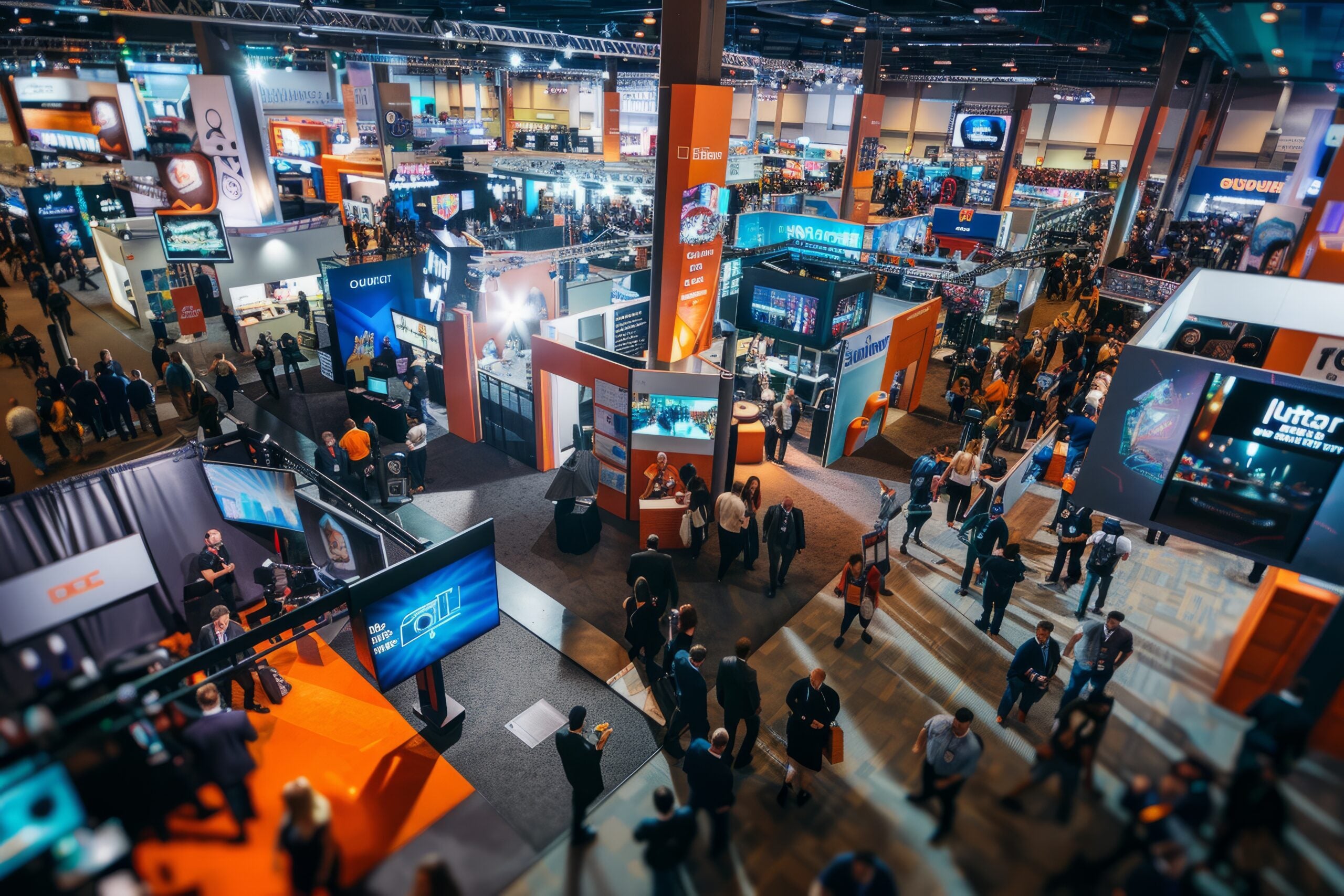
Renting a booth at a trade show can be a highly effective way for businesses to increase brand awareness, generate leads, and connect with industry professionals. Whether you’re a startup looking to make your mark or an established business aiming to stay relevant, exhibiting at a trade show allows for face-to-face interaction with potential clients and partners. The benefits of booth rental are numerous, but to make the most of it, it’s essential to understand the types of events where your business would shine, the costs involved, and how to prepare effectively.
Why Businesses Rent Trade Show Booths
One of the primary reasons businesses rent booths at trade shows is the unparalleled exposure to a concentrated, interested audience. Unlike other marketing channels, trade shows offer direct engagement with a highly targeted demographic. For example, a software company attending a technology expo can interact with IT managers, business owners, and decision-makers looking for solutions in their industry. This direct access accelerates the sales process, helping businesses establish credibility, demonstrate products, and collect valuable leads.
Trade show booths also allow companies to differentiate themselves from competitors. With creative booth designs, interactive displays, and marketing materials, businesses can build memorable experiences that leave a lasting impression on attendees. This environment fosters strong brand recognition and sets the stage for future customer relationships.
Moreover, trade shows often generate media attention, especially in niche industries, which can help a business gain additional publicity. Being a part of a well-known trade show can elevate your brand and provide opportunities for press coverage, further amplifying your reach.
Types of Trade Shows and Matching Venues
Not all trade shows are created equal, so choosing the right one is critical. Different industries have different trade shows, and selecting an event that aligns with your business ensures you’re reaching the right audience. Here are a few examples of trade shows, their industries, and the types of businesses that can benefit:
- Consumer Electronics Show (CES): This renowned event showcases the latest in tech innovation and consumer gadgets. It’s an ideal venue for businesses in the tech space, such as startups producing wearable devices, virtual reality systems, or smart home technology. A tech startup looking to break into the market would find CES invaluable for gaining exposure and networking with investors.
- Natural Products Expo: This show is the go-to venue for businesses in the natural, organic, and health product space. A local organic skincare brand or a company specializing in health supplements would thrive at this type of event. Attendees are there specifically to explore new products that fit a healthy, eco-conscious lifestyle.
- National Restaurant Association Show (NRA Show): Businesses in the food and beverage industry, including restaurant suppliers, kitchen equipment manufacturers, or even food startups, find this trade show beneficial. It connects foodservice professionals with products, solutions, and innovations.
- BookExpo America: Publishers, independent authors, and companies offering publishing services are drawn to BookExpo, the largest book industry event in the U.S. This is the perfect place for a small publishing house or a self-published author to exhibit.
The key to trade show success lies in choosing the right event where your target market congregates. Researching attendees, the size of the show, and the competition will help ensure your business gets the attention it needs.
Trade Show Booth Pricing and Options
Trade show booth pricing varies depending on the size of the event, the location of your booth, and the additional services provided. On average, a booth rental can cost anywhere from $1,000 to $10,000 for smaller regional shows, while larger, high-profile events like CES or a national expo can cost upwards of $20,000 to $50,000 or more for prime locations.
Booth size and location are major factors in pricing. A 10’x10’ booth, the most common option, is generally the least expensive, while larger spaces, such as 20’x20’ or custom-designed exhibits, can quickly increase costs. Additionally, prime locations near entrances, key speakers, or high-traffic areas often come at a premium.
Booth packages typically include basic amenities such as carpeting, a table, and chairs. However, many businesses choose to upgrade with custom designs, AV equipment, promotional materials, and more, which add to the overall cost. It’s essential to budget for shipping your products and booth materials, as well as drayage (handling and transporting your exhibit materials at the venue).
What to Bring as a Booth Renter
Preparation is key to making the most of your trade show booth. Depending on the type of product or service you’re showcasing, you’ll need different supplies, but here are some essentials to consider:
- Promotional Materials: Banners, brochures, business cards, and branded giveaways are must-haves. They serve as physical reminders of your brand for attendees after they leave the show.
- Product Samples or Demonstration Materials: If you’re selling a product, be sure to have samples or demo units available. For service-based businesses, providing a live demonstration or interactive experience can engage attendees.
- Signage and Displays: Your booth’s appearance should stand out. Eye-catching signage, digital displays, and well-branded visuals can draw attention and communicate your message instantly.
- Technology Setup: Laptops, tablets, or kiosks can be used for demos, lead generation, and capturing attendee information. Ensure you have all the necessary charging cables and Wi-Fi access.
- Staff and Logistics: Booth staff should be well-trained in pitching your product or service. Comfortable attire, a clear schedule for shifts, and a plan for booth setup and teardown are also essential.
Conclusion
Renting a booth at a trade show offers a valuable opportunity for businesses to meet potential customers, boost visibility, and drive sales. However, success depends on choosing the right event, budgeting for booth costs, and preparing the necessary materials and staff to make a lasting impression. With careful planning and execution, a trade show booth can be a powerful tool for growing your business and expanding your industry presence.
675 Views












